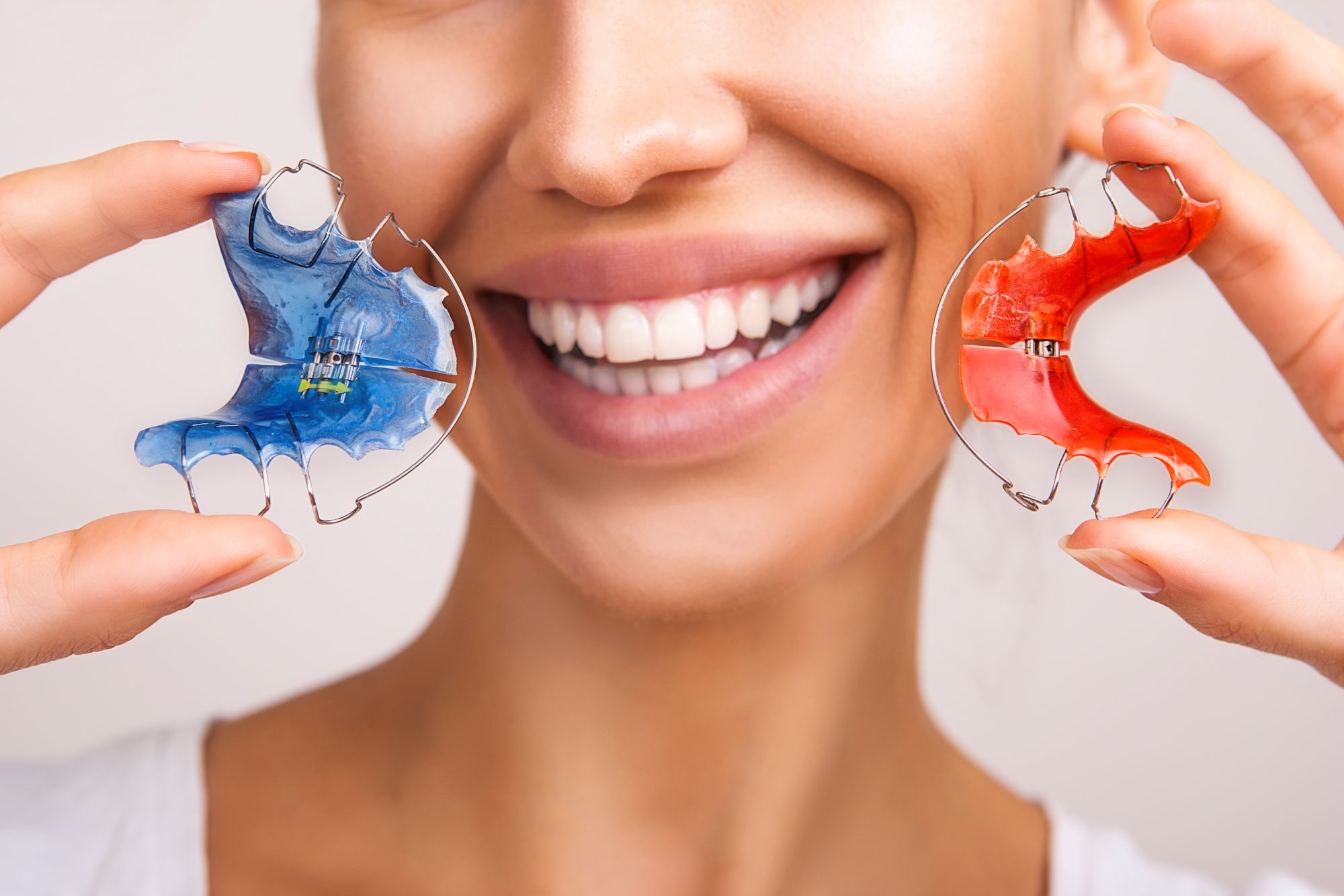Retainers play a crucial role in orthodontic treatment, ensuring that the results achieved during the active phase of treatment are maintained over the long term. Whether you’ve worn braces or Invisalign aligners, the retention phase is vital to keep your smile looking its best. Here’s an in-depth look at why retainers are so important and how to care for them properly.
Why Retainers Are Necessary
Orthodontic treatment involves moving teeth into new positions, which requires not only the movement of the teeth but also the restructuring of the supporting bone and tissues. Once braces or aligners are removed, the teeth have a natural tendency to drift back to their original positions. Retainers help to prevent this relapse by holding the teeth in their new positions until the bone and tissues stabilize.
Types of Retainers
There are several types of retainers, each with its own advantages and considerations:
- Hawley Retainers: These are traditional retainers made of a combination of metal wires and acrylic. They are adjustable and durable, making them a popular choice. However, they are visible and can affect speech initially.
- Essix Retainers: These are clear, removable retainers that are custom-made to fit your teeth. They are less noticeable than Hawley retainers and are popular for their aesthetic appeal. However, they are more prone to wear and may need to be replaced more frequently.
- Fixed Retainers: Also known as bonded retainers, these are attached to the back of the teeth using dental cement. They offer a permanent solution for retention, especially for the lower front teeth. While they are effective, they can make oral hygiene more challenging and require regular maintenance.
How Long Do You Need to Wear a Retainer?
The duration for wearing a retainer varies from person to person. Typically, orthodontists recommend wearing a retainer full-time for the first few months after braces are removed, gradually transitioning to nighttime wear. Some patients may need to wear their retainers every night indefinitely to maintain their results.
Caring for Your Retainer
Proper care of your retainer is essential to ensure its effectiveness and longevity:
- Cleaning: Clean your retainer daily using a soft toothbrush and mild soap. Avoid using hot water, as it can warp the retainer. For deeper cleaning, you can use retainer cleaning tablets or a solution recommended by your orthodontist.
- Storage: Always store your retainer in its case when not in use to prevent damage or loss. Avoid wrapping it in a napkin or leaving it out where it can be accidentally thrown away.
- Avoiding Damage: Do not expose your retainer to heat or pressure. Avoid eating with your retainer in, and do not bend the wires of a Hawley retainer.
Common Issues with Retainers
- Discomfort: It is common to experience some discomfort when first wearing a retainer. This should subside as you get used to it. If discomfort persists, consult your orthodontist.
- Loss or Damage: Retainers are small and can easily be misplaced or damaged. Always handle your retainer with care and store it properly.
- Staining and Odor: Regular cleaning can prevent staining and odor. Avoiding foods and drinks that can stain your retainer, such as coffee and tea, can also help.
The Importance of Follow-Up Visits
Regular follow-up visits with your orthodontist are crucial during the retention phase. These visits allow your orthodontist to monitor your progress and make any necessary adjustments to your retainer. They also provide an opportunity to address any concerns or issues you may have with your retainer.
Conclusion
Retainers are an essential part of orthodontic treatment, ensuring that the hard work put into straightening your teeth is not undone. By understanding the different types of retainers, how to care for them, and the importance of regular follow-up visits, you can maintain your beautiful smile for years to come. Remember, the retention phase is just as important as the active phase of treatment, so wear your retainer as instructed and take good care of it.
When considering orthodontic options or seeking the best care for your needs, it’s beneficial to stay informed and consult with experienced professionals. Orthodontic care is a long-term commitment, but the results—a healthy, beautiful smile—are well worth the effort.



